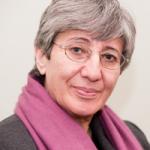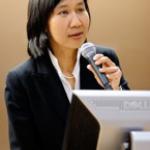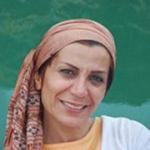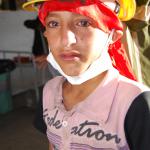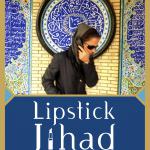Dr. Sima Samar is the Chairperson for the Afghan Human Rights Commission, and has spent her life working for improved education, health, and equality for women and girls in Pakistan and Afghanistan. She served as the Minister of Women’s Affairs in Afghanistan in 2002, before being forced to resign due to death threats for questioning conservative Islamic laws. Dr. Samar spoke with Muslima curator Samina Ali about her life, the challenges facing Afghanistan, and why she has the utmost faith in Afghanistan’s women.
IMOW: Your story is one of those rare ones of true inspiration. You have gone from being a refugee in Pakistan to returning to your native Afghanistan and being appointed as Vice-President in the Hamid Karzai-led interim government. When you look back on your path your life took, how do you feel?
Sima Samar: When I look back I feel really happy because it took a long time to get to this position. But, one thing that you can be sure of is if you have commitment and dedication you will reach your objective. My objective was not always to be in a position of power, but in a position where men could admit that women are also able to work as human beings.
In 1979, your husband was arrested by the communist regime and you fled with your young son to neighboring Pakistan. You lived as a refugee for over a decade. What was that time like for you and your son?
Yes, my husband was arrested in 1979 and after the arrest my son and I fled to Pakistan. Living in Pakistan during this time was quite difficult because we were living without our identity. It is very difficult for anyone in any situation to live without any real rights, and this is how we were living at that time.
Our viewers will be inspired and amazed to hear that even as a refugee you continued to think of others. You were trained as a doctor in Afghanistan and while working at the refugee branch of the Mission Hospital, you became distressed by the health care facilities and established the Shuhada Organization in 1989. What was the mission of that organization?
Living in a place where I did not have my identity, I felt more responsibility to help my other country women who had even less a voice than I did. The mission of the Shuhada Organization was to help these women by giving them confidence and dignity.
It seems you’ve always had a special focus on helping women and girls. Even when you returned to Afghanistan, you were appointed Minister for Women’s Affairs. As Minister, what was the one change you were able to instigate that you’re most proud of?
As Minister for Women’s Affairs I tried to work in the position as perfectly as possible. I wanted to show the incredible ability that women have. Women are not vulnerable, and one of my major goals was to see that women were not treated as a vulnerable group.
As a rare Afghani woman politician, what in your opinion is the biggest challenge currently facing your country?
I think the biggest challenge in Afghanistan at the moment is the real lack of security. Lack of security is a real challenge because a lack of security can lead to violence, which impedes other areas including the right to education, health care, and the right to free movement.
How do you see this resolving, if it can?
I think that if the government promotes good governance, accountability, and justice the security issues will improve as a result.
You wear many powerful hats. Another is that you are chairperson of the Afghan Independent Human Rights Commission (AIHRC). I’ve read an interview in which you say that one of the major crises facing the Commission is the “lack of awareness of rights among the people who can’t defend their rights or respect the rights of others.” Can you please explain to our viewers what you mean by this?
What I meant by this is that if you do not know what your rights are, you cannot defend them. If you face a violation of your rights without knowing it is an extreme violation, you may take being treated in this way as “normal’. However, if you know what your rights are, then you can defend them, stand for them, and also try not to violate other people’s rights.
AIHRC did a good deal of research on women and child rights and on child laborers. Many do not know, but children are often breadwinners. Can you explain why?
I do not think anyone would want their child to work when they are as young as five years old. But if these children do not have anyone to feed them, they have to work to survive. A lot of people died during the conflict in Afghanistan, and a lot of women and children were left behind. In traditional Afghani culture it is often the men who work and try to feed the family. Therefore, when these men were lost in the Afghani conflict, women and children had to begin to fend for themselves.
One controversial view you hold is that women must not be kept in purdah [meaning “curtain,” or the practice of concealing women from men]. You even speak out against the wearing of the burqa (head-to-foot veil). Is this because you see these practices as misguided readings of the Qur’an?
I believe that in Islam the actual style of the Hijab is not mentioned anywhere, therefore the burqa that is used in Afghanistan is not mentioned either. I see these misreadings as a misuse of religion, as well as the use of religion against women. As Muslim women we have to teach the value of Islam, an Islam where people live with full dignity.
As a medical doctor, you’ve pointed out that many women in Afghanistan suffer from osteomalacia due to an inadequate diet. Wearing a burqa reduces exposure to sunlight and aggravates the situation for women suffering from osteomalacia. This is an incredible medical phenomenon that is not very well known. Can you please explain what it is?
Osteomalacia means softness of the bones and it affects women who do not have proper nutrition and access to reproductive health care, etc. Women who lack access to reproductive health care, especially to contraceptives, are often pregnant or breastfeeding. On top of that, by wearing cloths and burqa they are not exposed to the sun. The repeated pregnancies, the years of ongoing nursing combined with lack of exposure to the sun because of wearing the burqa means these women have insufficient calcium and vitamin D. They can get Vitamin D by simply exposing their body and skin to the sun! If women weren’t forced to wear the burqa, they could at least expose their hands, feet and face to the sun and even that would help lessen the possibility of getting osteomalacia. Unfortunately, most of the women in Afghanistan are suffering from osteomalacia.
You have received a great deal of international awards for your work on human rights. Most recently, the Right Livelihood Award from Sweden, which honored, in the words of the jury, your “longstanding and courageous dedication to human rights, especially the rights of women, in one of the most complex and dangerous regions in the world.” As someone who’s fought for women’s rights, what is the number one abuse you continue to see even now?
A general lack of dignity and equality is an abuse that I continue to see. Also, that people still view women as vulnerable, weak, and soft.
What can the younger generation of women do to help drive forward women’s rights?
To help drive forward women’s rights across the globe, the young generation of women should stand strong in solidarity with one another, they should believe that they are equal to any other human being, and they should continue to educate themselves to further build their capacity to create change.
How can we support you as you continue your work in Afghanistan?
I ask that all stand in solidarity with the women of Afghanistan as we are part of the global female body.
